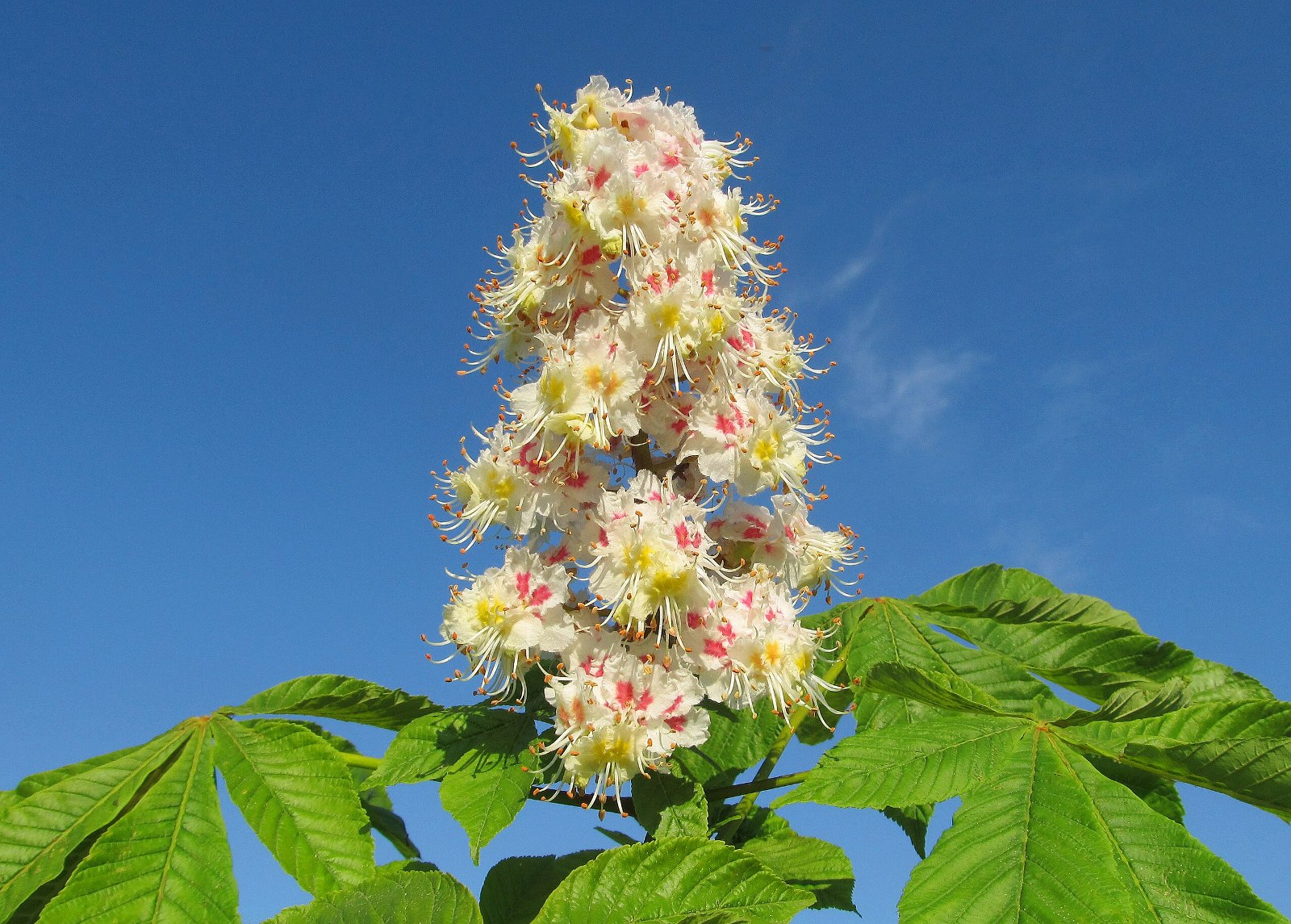Aesculus hippocastanum
Horse chestnut
Species Tolerances
- Drought Tolerance: Medium
- Shade Tolerance: Yes
- Waterlogging Tolerance: Low
- Frost Tolerance (trees from warmer climates may be frost tolerant, but their flowers may not be): Yes
- RHS Hardiness: H7
- Optimum Conditions for Growth:
A large majestic tree with spreading branches, usually grown as a specimen in an avenue or in a line. Hardy and will grow in any loamy soil, medium to nutrient poor. Can grow in acidic soil, though no strong dependence on either acid or alkaline soil pH. - Susceptibility to Pest/Disease:
May be susceptible to ‘bleeding canker’ Pseudomonas syringae, which is fatal. May be affected by leaf blotch fungus Phyllosticta paviae which is unsightly but not seriously damaging, as is horse chestnut leaf miner. Can host Phytophthora ramorum

Aesculus_hippocastanum/ Tsyganov Sergey/ https://creativecommons.org/licenses/by-sa/4.0/deed.en
Service to Pollinators
- Summary of Service to Pollinators:
A very good source of nectar and pollen enabling bee colonies to build up well in spring. A primary source of resins/oils for honeybees to make propolis, and some honeydew available when aphids active. - Nectar Value to Pollinators: 3 (of 0-3)
- Honeydew Value to Pollinators: 1 (of 0-3)
- Pollen Value to Bees: 3 (of 0-3)
- Flowering Period: April-Jun
Risks
- Human Toxicity: Toxic
- Livestock Toxicity: Toxic
- Invasive Risk: No
- Suckering: No
Products
- Edible Fruit: No
- Edible Leaves: No
- Edible Sap: No
- Edible Seeds: No
- Honey, major source in UK: Yes
- For any medicinal potential, see 'Further Details' below.
- Timber: No
- Livestock Fodder: No
- Other Products:
A primary source of resins/oils for honeybees to make propolis (which has anti-microbial properties, resistance to heat exposure, frost and radiation, attacks by arthropods and microbes)
Utility
- Nitrogen Fixation: No
- Organic Matter Accumulation: Yes
- Phytoremediation: Insufficient Data
- Deacidification: Insufficient Data
- Windbreak: No
- Soil Erosion Control: Yes
- Shade or Shelter: Yes
- Plant Support: Insufficient Data
- Integrated Pest Management: Insufficient Data
- Wildlife Value: Yes
- Wildlife Value Summary:
Low biodiversity value but of service to pollinators and seed for a large range of birds and mammals, and honeydew for insects when aphids active. - Graduated Nativeness Classification ⓘ: 2 (of 1-10)1. Historic Native
2. Historic Introduction
9. Neutral Introduction
Further Details
Good for poultry systems.